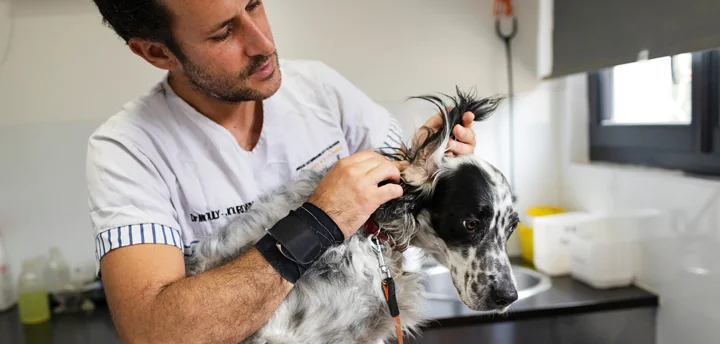
Prevention and early diagnostics
Regular veterinary check-ups are essential for keeping your pet happy and healthy. These visits help prevent diseases and detect any issues in their early stages. Not only does early detection lead to better outcomes for our beloved pets, but it also means less financial costs, reduced stress, and smoother treatment processes for both pets and their owners. Vaccinations, parasite prevention, routine deworming, dental checks and physical exams are important components of preventing diseases. Regular veterinary checks can also lower your animal’s stress when visiting a vet.
The frequency of regular veterinary checks depend on the age of the animal, previous medical history, breed and lifestyle.
• Puppies/kittens: 5 times by the age of six months (Core Vaccination Schedules)
• Adult dogs/cats: at least once a year or more frequent depending on the pet’s age, lifestyle, and health status
• Geriatric dogs/cats: every six months is recommended
Vaccination
For both cats and dogs vaccination is key in preventing life-threatening diseases. Vaccines are separated into core (strongly recommended), non-core (optional) and not recommended vaccines. Core vaccines are considered vaccines that all dogs throughout the world must receive, at recommended intervals.
For dogs, core vaccines typically include protection against:
• Canine distemper virus (CDV)
• Canine adenovirus (CAV; types 1 and 2)
• Canine parvovirus type 2 (CPV-2) and its variants
Core vaccines for cats include:
• Feline panleukopenia (FPV),
• Feline herpesvirus (FHV-1)
• Feline calicivirus (FCV)
Additionally, rabies vaccination is considered a core vaccine for cats and dogs in many regions and is often a necessity if you want to travel with your dog or cat. For more information consult your vet to ensure your animal buddy gets the necessary protection.
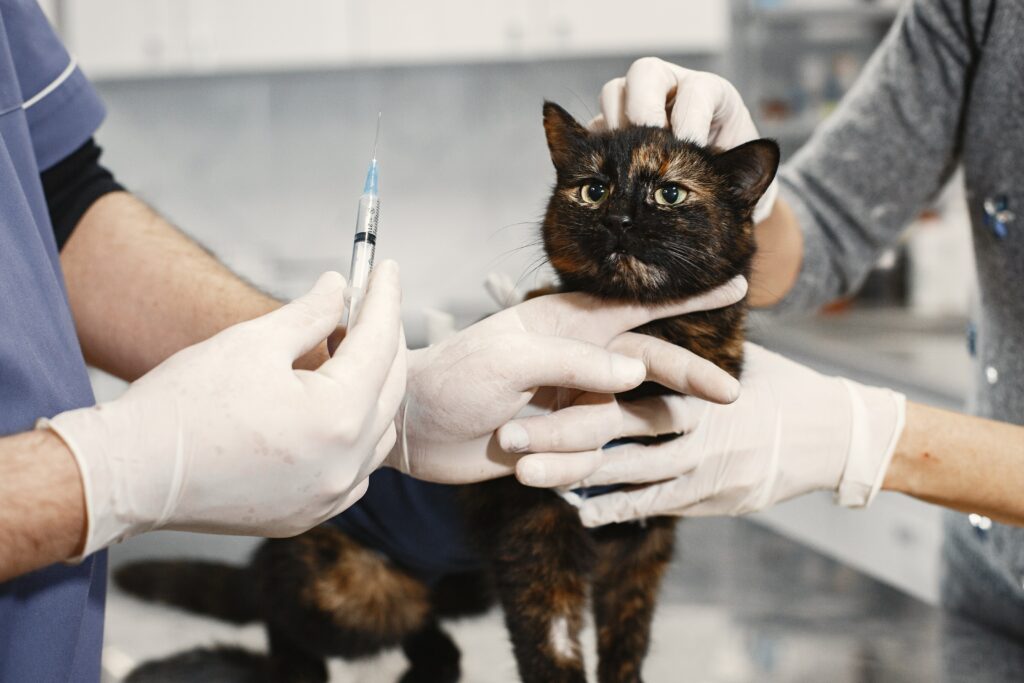
Dental Health
Dental disease is a common and concerning health issue for dogs and cats. While it might not always be top of mind, its impact can be significant if left unchecked. Yearly veterinary check-ups are important to prevent dental problems. If you observe bad breath, broken or loose teeth, abnormal chewing, or any other issues, it’s advisable to schedule a veterinary check-up sooner rather than later. See here for more info.
Routine Testing
Depending on your pet’s age and health status, the vet may recommend routine diagnostic tests such as blood work, urinalysis, or faecal testing to screen for underlying health problems. Screening tests delve into aspects of your pet’s health that aren’t easily visible during a physical exam, such as kidney function or blood cell counts, offering a more comprehensive understanding of their well-being.
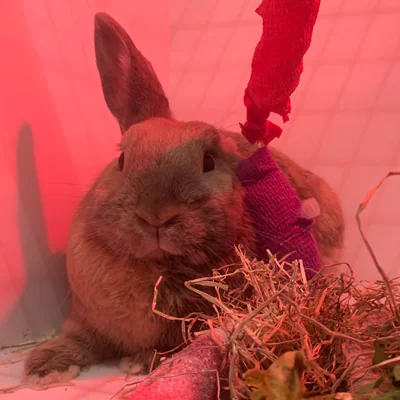
Regular check-ups could save you money
Annual check-ups and preventive care are essential for keeping pets healthy, but also could save you money. Routine examinations can identify concerns before they worsen, potentially sparing you from expensive treatments down the line. More information here.
Less stressful vet visit
Most pets feel anxious during vet visits, and some may even show aggression due to fear. Using treats before and during check-ups can create a positive association with the experience. “Happy visits” at the clinic can put your pet at ease, making vet trips a more positive experience. Don’t hesitate to consult with your vet for more tips on easing your pet’s stress during visits and check out these useful tips.
Afterall, regular vet check-ups are essential for your pet’s health, detecting issues early, save you money in the long run and allow you to spend longer quality time with your companion. So why wait, book your next check-up now!
Ensuring that your animal companions follow a proper and balanced diet is essential for their overall health and well-being. While it is important to know the distinction between complete and complementary pet foods, it is also crucial to inform yourself on the different nutritional needs of each species of pet. This will ensure that they follow a proper diet as well as enjoy the health benefits from it. Read our blog to learn more about the different nutritional needs of pets and the benefits of good nutrition.
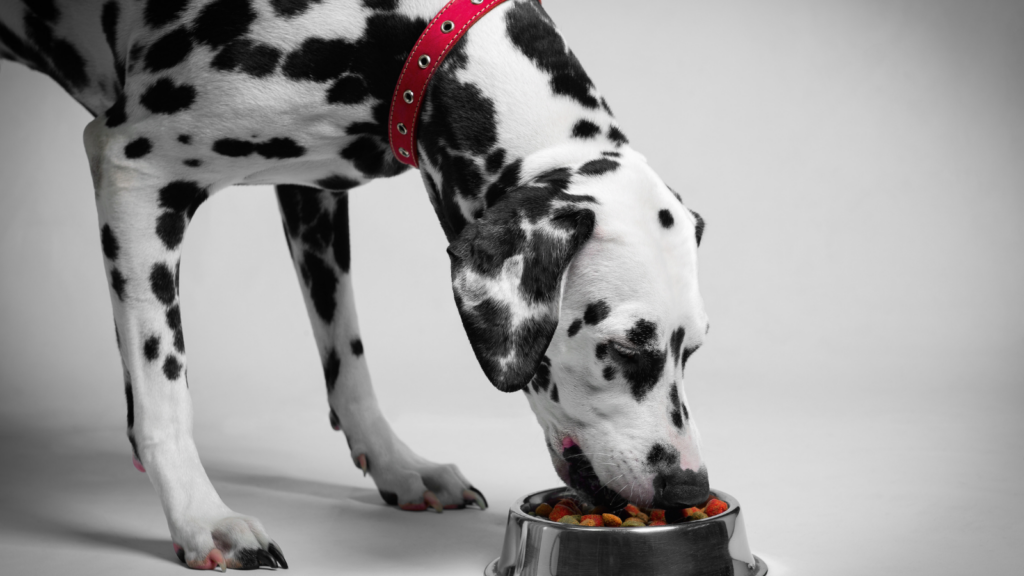
Good Nutrition in Dogs & Cats
Cats and dogs have specific and distinct nutritional needs, which vary by life stage, physical and mental health, and level of activity. Although cats and dogs belong to the same Carnivora order, the dog’s feeding behaviour is omnivorous, while the cat is a true carnivore. So cats must have certain nutrients in their diet that are only found in animal-based ingredients.
In a nutshell, the different food needs for cats and dogs can be summarised as such:
- Dietary proteins: both cats and dogs need proteins for energy, growth and repair of the body. However, cats require a higher amount than dogs during both growing and adult stages. Cats are also less able to down-regulate their rate of protein breakdown when fed a diet low in protein. So make sure to check that proteins are present in high levels in your cat’s pet food before buying it!
- Taurine: this is an amino acid that is distributed throughout most body tissues. While cats must eat preformed taurine from animal-based ingredients, dogs can produce enough taurine from other amino acids to meet their nutritional health needs.
- Vitamin A and B3: both cats and dogs need these vitamins for a healthy vision and healthy skin. Cats can only eat preformed Vitamin A from animal-based ingredients while dogs can also obtain it from plant-based ingredients. For Vitamin B3, cats can only obtain it by eating the preformed vitamin.
- Fatty acid: this is essential for energy production, and cats can only obtain fatty acid, from animal-based ingredients while dogs can obtain it from both animal- and plant-based ingredients.
For more information: https://bit.ly/3pml5pX
Good Nutrition in Other Pets
It’s not only our cats and dogs who require proper nutrition to maintain their overall health, other pets do too!
When it comes to small mammals like hamsters, rabbits and guinea pigs, it’s important to remember that each species has specific nutritional requirements. A hamster needs high levels of animal protein, while guinea pigs have a high need for vitamin C. And carrots should only be given to rabbits as treats and in small pieces due to high sugar levels.
Fish and turtles must be given complete food in flake or pellet form or natural products, and the raw materials have to be selected with care. It’s important to note too that, when it comes to fish, their nutritional needs vary greatly depending on their origins.
Pet birds also have nutritional requirements which are dependent on their different species. Most companion birds are seed eaters but some species, like Robins, eat mainly non-seed diets, including insects, fruit, flowers, leaves and nectar. And we mustn’t forget that pet birds are selective feeders, meaning that they will choose their favourite food only when given a selection. So, make sure to provide a variety of food to your pet bird!
For more information: https://bit.ly/3FIS7qt & https://bit.ly/36qBrbR
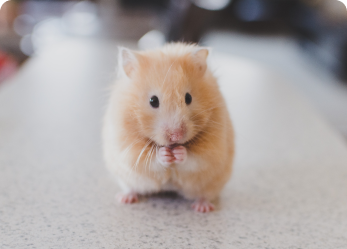
Benefits of Good Nutrition
Ensuring proper nutrition for your pet will also improve their overall health. Indeed, without healthy and balanced nutrition, your pet may lag in performing daily activities and remaining energetic, active and healthy.
Good pet nutrition offers four main benefits:
- Boost for skin and fur health: Pets need the right balance of fatty acids to ensure their skin and fur is healthy. If these nutrients are not provided, your pet’s skin can become dry, resulting in a coat that falls out, splits, or breaks. Fatty acids will help prevent skin problems, reduce irritation and fight inflammation.
- Improved muscle tone and overall body condition: Protein is one of the essential nutrients that your pet needs for building organs, muscles, hair, skin, and other tissues. Your pet’s cells are made of proteins, so they need more proteins to repair damaged cells or create new ones. Ensuring a proper intake of proteins is even more important when your pet is young, growing, or pregnant.
- Disease prevention and immune system support: Vitamins and minerals are essential nutrients in your pet’s diet as they are important for preventing diseases and supporting your pet’s immune system. While many vitamins help reduce damage done to cells of the body, minerals promote the healthy function of the immune system.
- Proper digestion: The carbohydrates in your furry friend’s food are the nutrient that aids proper digestion by supplying the fibre that helps with both digestion and elimination. A food that is easy to digest is important, ensuring your pet can easily use all the essential nutrients found in the food.
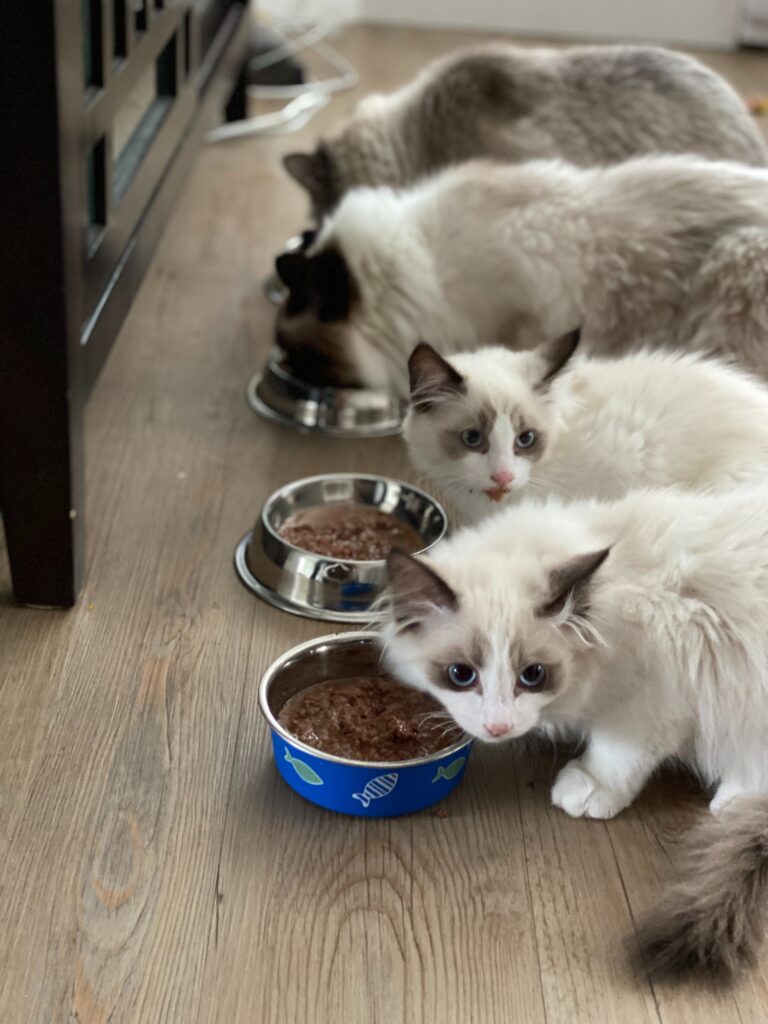

Seasonal care protects your pet all year round
All four pillars of pet care contribute to the wellbeing of our pets and we have to keep in mind that we should take care of them every day, and consider their needs according to the season of the year we are in. For example, some species might suffer more during the crazy hot days of summer, and others get the shivers when the temperatures drop during winter: give them more water and refreshments when the heat waves come and a warm blanket or an inside space during winter!
Make sure you have the means to provide care
Protecting your pet’s well-being includes creating time and space for them. Having a pet is a privilege that is not granted to everybody. Before adopting an animal, make sure you have the means to sustain both yourself and your family, and your pets-to-be. If you do get a pet, then make sure they have a safe space to shelter inside or outside the house as appropriate and teach them the way to get back home if they get lost. If your pet does not need to spend lots of time outside, try and keep them active and entertained within their own inside spaces. Lack of exercise and activity may cause them to develop destructive habits. If you have children, teach them how to treat animals in a kind way, as pets are not toys to play with, but they can be best buddies.
Don’t be an absent pet parent
Pets can suffer from feelings of abandonment, and some of them need constant attention. Again, taking good care means creating time for them. The experience of owning a pet can be very educational for your children but it is good to ensure any pets are trained to share the same spaces and interact appropriately, to live peacefully side-by-side and without any risks. You may think that scratching at our clothes or furniture is something they will grow out of, or that play fighting is kind of cute, but actually it is best to correct such attitudes when they are still young, to avoid bad behaviour which may result in families wanting to give up a pet. There are tricks you can follow to teach your puppies or kittens not to bite hard so that they can learn where the boundaries are and they can grow as together as good friends.
Learn to recognise body language
Pet well-being also incorporates being aware of your pet’s body language. It is essential to learn how to recognise and interpret different signs, as we cannot just sit and chat with them about how their day is going. Understanding their behaviour changes can contribute to their wellbeing, as we would know immediately if they are feeling worried, submissive, relaxed, bored or happy. And we can then provide them with the right attention in response.
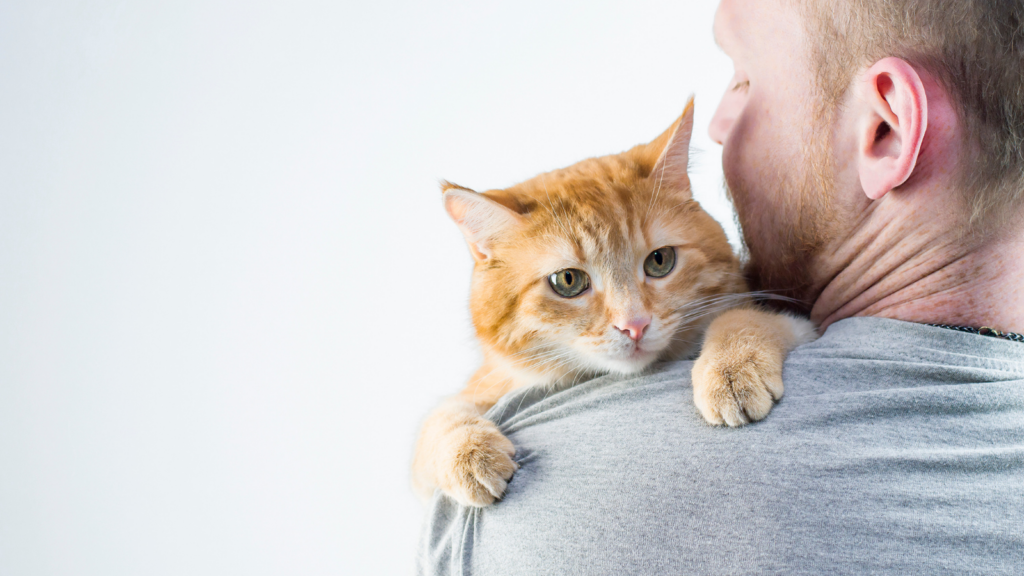
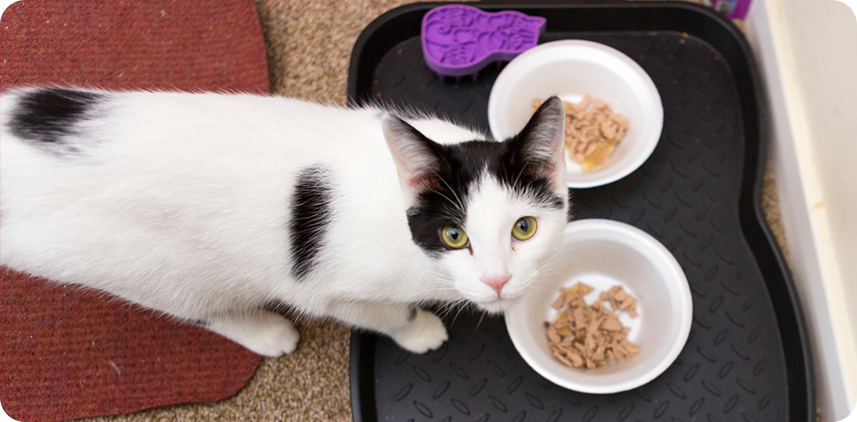
A healthy balanced diet for pets
Good nutrition is crucial for your pet’s health and well-being. As a pet parent, you must provide your animals with proper food, meaning it must contain all the right nutrients they need for optimum growth and development. Ask your vet or pet care professional what foods suit your pets’ needs. They will advise on you the best options and portion control. This way, you can help prevent poor health conditions later in life.
‘Complete’ pet foods
This is probably the most important term you need to be familiar with when choosing a pet food and it will be on the pet food label. The term ‘complete’ is in fact a legal definition and it means the product must contain (as required by law) all the nutrients your pet needs for healthy body function. Feeding a complete diet means you don’t need to provide any other food.
‘Complementary’ pet foods
If the term ‘complementary’ is on the pet food label, this means that the product isn’t nutritionally complete, and it will need to be fed alongside something else. Dog treats for instance are a complementary pet food. Remember to keep treats to a minimum as these will need to be taken into consideration at mealtimes and this can disrupt the nutritional balance of the main meal.
Dietary needs at different life stages
Balanced and complete nutrition is important for all pets; however, their nutritional needs can vary at different stages in their lives. For instance, the nutritional needs of a growing puppy or kitten are quite different to an adult cat or dog that may be less active. As pets progress into their senior years, their needs will change again. It is important to take your pet’s life stage into account when choosing your pet food as the diets have been specially formulated for a specific life-stage.
How much should I feed?
Balanced and complete nutrition is important for all pets; however, their nutritional needs can vary at different stages Feeding guidelines are always provided on the pet food packet. The guidelines will show how much of the product you need to feed per day. The recommendations are usually based on the pet’s weight, and sometimes take in to account their life stage and activity level. Although each pet will have their own unique needs, you should at least start with the amounts recommended before making appropriate adjustments according to weight changes. We always advise you weigh out your portion as estimating leaves a bit of room for error!
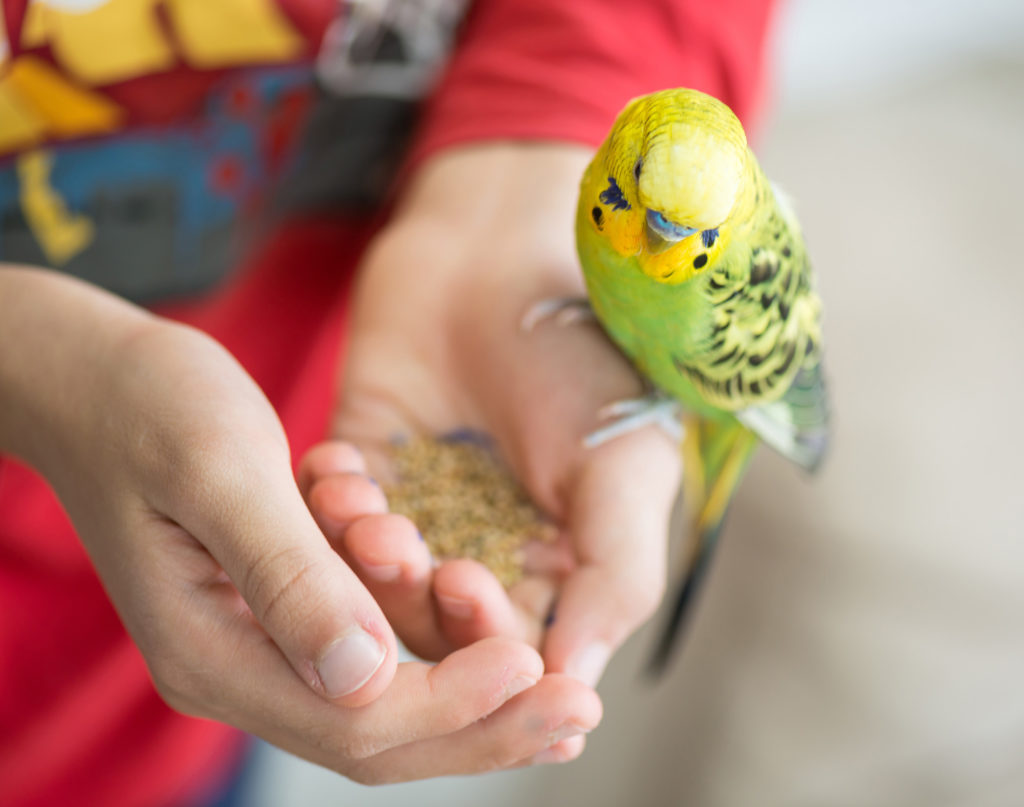
Avoid feeding table scraps and titbits
Table scraps and titbits can be higher in calories for our pets than we imagine making it hard to keep them at a healthy weight. Also, some human foods are toxic to pets.
How can I tell if my pet is doing well on their food?
Key signs that your pet is healthy and thriving are:
- A clean and shiny coat
- Clear, bright eyes
- A good weight and body shape
- Mouth should smell fresh and gums should be pink
If you have any concerns, don’t hesitate to speak to your vet.
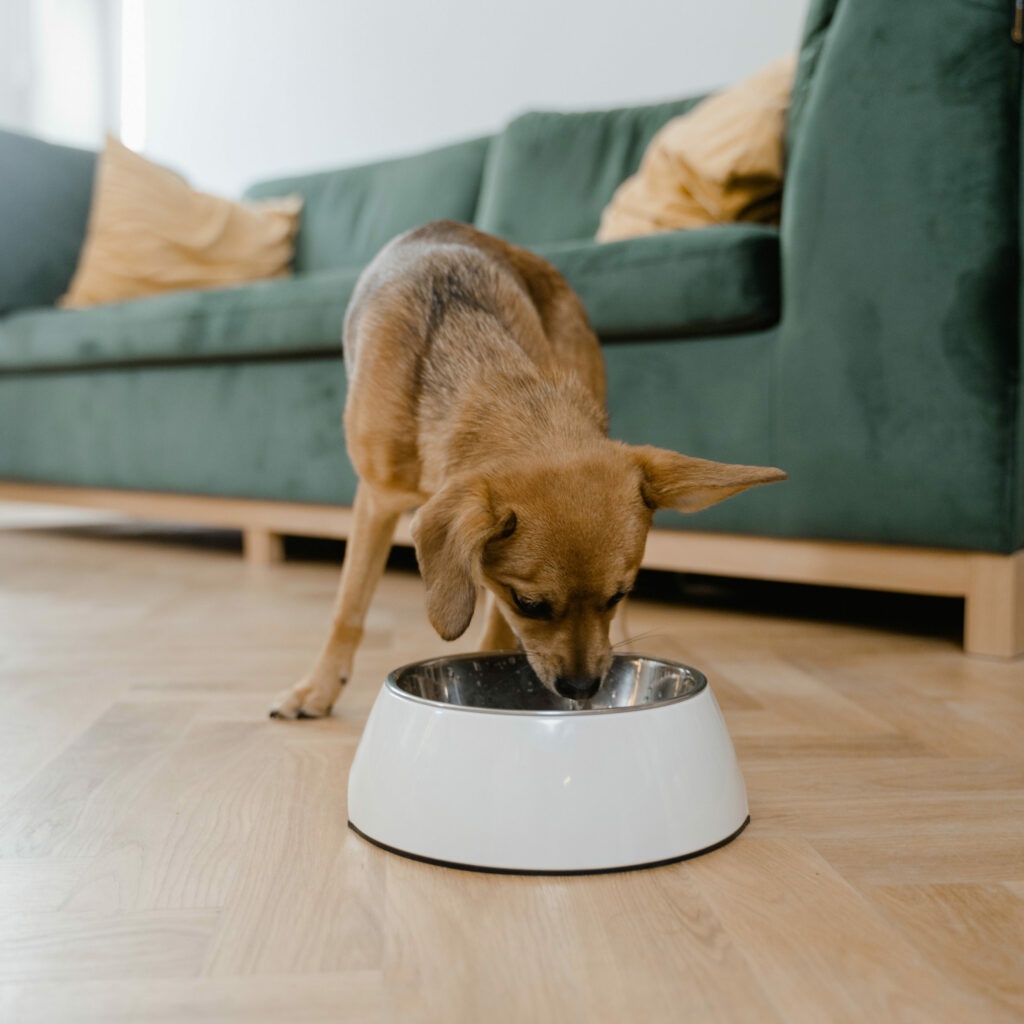

Keeping your pet active and happy
Pets are full of energy and you might have noticed them getting a case of the funny “zoomies” – racing around the house for no reason. It’s because they need an outlet for all that energy! Bored animals can develop behavioural problems such as biting, scratching, digging, or making noise. Toys and puzzles can keep your pet from feeling bored while you’re not home. Play time is a fun way to bond with your pet while keeping them active and helping their minds stay sharp.
Staying active prevents obesity
Pets are full of energy and you might have noticed them getting a case of the “zoomies” – racing around the house. Obesity is not only related to the food your pets eat, but also to the amount of physical activity they do – exactly like people! Several health issues related to obesity can be avoided by providing them with a healthy diet and keeping them active. No matter the age, breed, or size, every dog needs regular exercise. Taking your dog on walks is a great opportunity to strengthen your bond and it also benefits your health. If you think your pet might be overweight, ask your vet for advice as they’ll be able to confirm the optimum weight for your pet.
Exercising improves overall pet health
Do not forget that one of the best ways to care for your pet is to share your love and time. Not only do they want attention, but they need it to be healthy – both physically and mentally. Showing them love can boost their immune system. How? By petting them, and playing with them, or taking them for walks outside. This way, they’ll feel loved and taken care of.
Keeping their joints healthy
Frequent exercise has many benefits for pets, including improved cardiovascular fitness, lower blood pressure, and stronger muscles and bones. It also helps their joints stay lubricated, avoiding problems in the future. Exercising can also help to ease any pain your pet might already have in their joints.
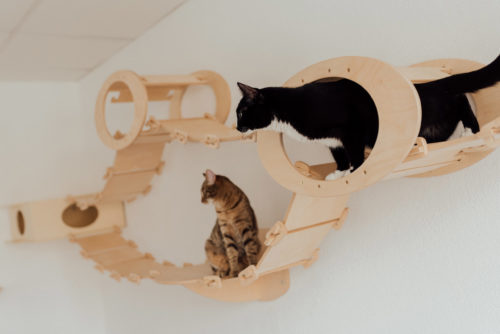
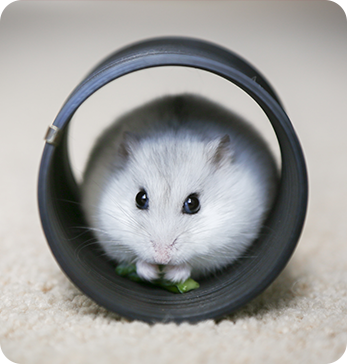
Vet check-ups ensure help good pet care
Sometimes pets need more attention than people do. They age much faster than us and tend to have changes in health conditions more quickly. To avoid illnesses and diseases, or simply unwanted, unpleasant and unhealthy conditions, try to organise a vet check-up at the very least once per year, to get a clearer picture of their health. Through regular check-ups your vet can identify any problems early on, and be able to treat them sooner and more effectively.
Keeping pesky pests at bay
Moreover, with regular visits to your vet you can get advice on your pet’s fur or skin type and your vet can recommend the best products to protect your pet from fleas, ticks, heartworm, tapeworm and any other harmful diseases that can pose a significant threat to your pet and make them ill.
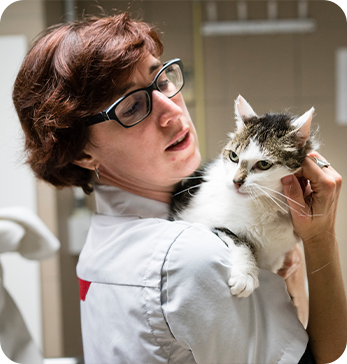
Vaccination protects the #PetPower
Your vet can also prevent some pretty nasty diseases in your pet by vaccinating them in their early years and by developing the right vaccination plan for your furry friends. It is important that adult pets get booster vaccinations when advised by the vet to ensure they are protected against specific illnesses throughout their life.
Prevention is key
Vaccines are not the only preventive solutions you can take to protect your pet from health-related problems. For example, it’s advisable to take proactive care of your pet’s dental health through teeth brushing and dental chews, or professional cleaning. This helps to avoid periodontal disease that could cause irreversible damage not only to your pet’s gums and teeth, but can lead to other serious health issues, like heart disease and kidney failure.
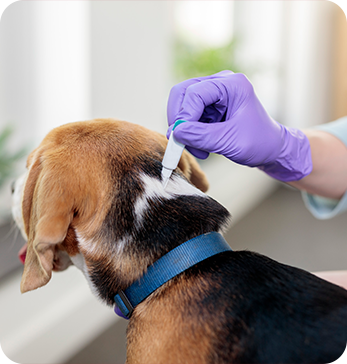
Another way of preventing animal diseases is by spaying or neutering them. This helps to avoid certain uterine infections and even uterine and ovarian cancer. It is always best to ask for your vet’s advice on this. Exercise is also important as it stimulates both the mind and physical activity. Exercise alongside attention to nutrition and the amount of food your pet gets can help ward away obesity and related diseases.
Do not forget that the best care your pets can get is your love and attention. Keeping pets healthy both physically and mentally, will help to ensure they live a long and happy life with you!